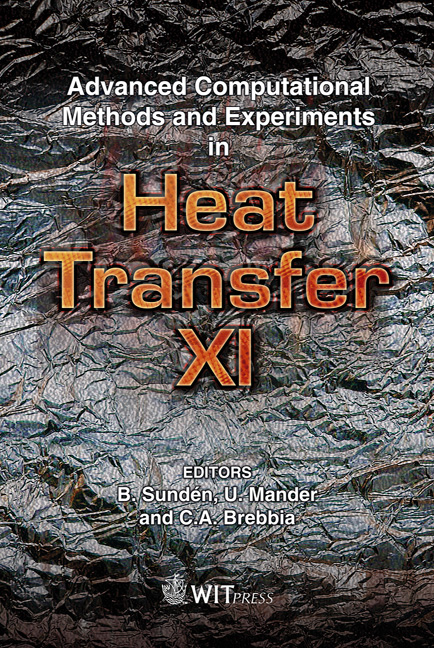Experimental Determination Of The Onset Of Turbulence On Inclined Plates Using Hot Wire Velocity Measurements
Price
Free (open access)
Transaction
Volume
68
Pages
10
Page Range
147 - 156
Published
2010
Size
3,932 kb
Paper DOI
10.2495/HT100131
Copyright
WIT Press
Author(s)
A. A. Rodríguez-Sevillano, I. Pérez-Grande & J. Meseguer
Abstract
The problem of determination of the turbulence onset in natural convection on heated inclined plates in an air environment has been experimentally revisited. The transition has been detected by using hot wire velocity measurements. The onset of turbulence has been considered to take place where velocity fluctuations (measured through turbulence intensity) start to grow. Experiments have shown that the distance to the plate edge where the onset begins depends both on the plate inclination angle and the plate temperature, and thus on the Grashof number defined in terms of the temperature difference between the heated plate and the surrounding air. An experimental setup to measure the above mentioned distance has been developed. In this paper, such an apparatus is presented, as well as the experimental procedure and some experimental results. Keywords: mirror seeing, turbulence onset, natural convection. 1 Introduction One of the problems arising on Earth-based solar telescopes is concerned with image degradation due to the boundary layer, which is formed close to the Sunheated mirror surfaces. Since these surfaces are warmer than the surrounding air, when the surface is inclined the fluid flows over the surface due to convection, and thus a thermal boundary layer is formed. At initial stages the boundary layer flow regime is laminar, but after some distance turbulent eddies are formed and
Keywords
mirror seeing, turbulence onset, natural convection





